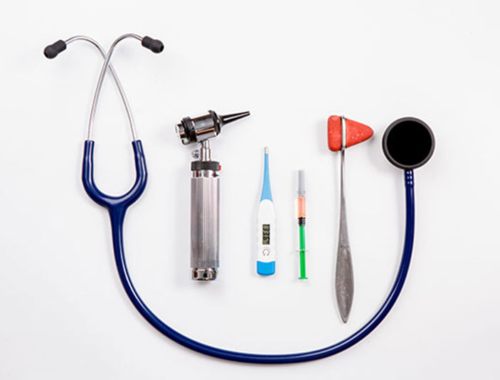Disease Management in Poultry Farming: Keeping Your Flock Healthy and Happy
Discover effective strategies to ensure the well-being of your poultry
Introduction:
As a poultry farmer, ensuring the health and well-being of your flock is vital for sustainable and profitable operations. Disease management plays a crucial role in maintaining a healthy poultry farm. The key is to implement preventive measures, routine health checks, and effective biosecurity practices to minimize the risk of diseases spreading through your flock. In this article, we will explore the importance of disease management in poultry farming, along with strategies to keep your chickens healthy and thriving.
The Impact of Diseases on Poultry Farming:
Diseases can have devastating effects on poultry farms, leading to significant economic losses and compromised animal welfare. Outbreaks can spread rapidly and affect the entire flock if proper disease management protocols are not in place. Common poultry diseases include avian influenza, Newcastle disease, coccidiosis, and infectious bronchitis. These ailments can result in decreased egg production, poor growth rates, increased mortality, and decreased meat quality. Therefore, adopting robust disease management practices is essential to protect your investment and ensure the well-being of your poultry.
Key Strategies for Disease Management:
-
Biosecurity: Implementing strict biosecurity measures is paramount to prevent diseases from entering your poultry farm. This includes limiting access to your farm, providing footbaths or disinfection areas for visitors, and maintaining separate clothing and equipment for different areas. Additionally, regular cleaning and disinfection of facilities, equipment, and vehicles can help minimize the risk of disease transmission.
-
Vaccination Programs: Designing and implementing appropriate vaccination programs is a crucial component of disease management. Consult with veterinarians to determine the most effective vaccines for your flock, taking into consideration the prevalent diseases in your region. Regularly update and administer the vaccines to ensure adequate protection for your chickens.
-
Proper Nutrition: Providing a balanced diet with essential nutrients is vital for maintaining a healthy immune system in your poultry. Ensure a sufficient supply of clean and fresh water, along with appropriate feed that meets the specific requirements of each age group or production phase. Malnutrition can weaken the immune system, making chickens more susceptible to diseases.
-
Regular Health Checks: Conducting routine health checks enables early detection of diseases and prevents their rapid spread. Regularly observe your flock for any signs of illness such as decreased appetite, lethargy, ruffled feathers, or respiratory issues. Consult a veterinarian promptly if you notice any abnormalities, and follow their recommendations for diagnosis and treatment.
-
Strict Hygiene Practices: Maintaining high standards of hygiene is crucial to prevent the spread of diseases. Regularly clean and disinfect your poultry houses, equipment, and water sources to minimize infections. Proper waste management and strict adherence to hygiene protocols are vital to preventing the accumulation of pathogens and reducing the risk of disease.
Conclusion:
Disease management plays a significant role in the success of any poultry farming operation. Ensuring the health and well-being of your flock through preventive measures, routine health checks, and robust biosecurity practices will help safeguard your investment and maintain profitability. By implementing effective disease management strategies, you contribute to the overall welfare of your chickens and promote a sustainable and thriving poultry farm.
FAQ:
- What is biosecurity, and why is it important for disease management in poultry farming?
-
Biosecurity refers to measures taken to prevent the introduction or spread of diseases. In poultry farming, it includes controlling access to the farm, cleaning and disinfection protocols, and maintaining separate clothing and equipment for different areas. Biosecurity is crucial as it reduces the risk of diseases entering the farm and spreading through the flock, ultimately preserving their health.
-
Why are vaccination programs necessary for disease management in poultry farming?
-
Vaccination programs help protect poultry from various diseases by stimulating their immune systems to produce a defense response. Vaccines are tailor-made to combat specific diseases prevalent in different regions. By administering appropriate vaccines at the recommended intervals, poultry farmers can significantly reduce the incidence and severity of diseases within their flocks.
-
How does nutrition affect disease management in poultry farming?
-
Proper nutrition is essential for maintaining a healthy immune system in poultry. Well-nourished chickens have a stronger defense against diseases, reducing the likelihood of infections. Providing a balanced diet with all necessary nutrients and ensuring access to clean water is crucial for optimal growth, development, and disease resistance.
-
Why are regular health checks important in disease management for poultry farming?
-
Regular health checks allow early detection of diseases, enabling prompt intervention and minimization of their spread. By being vigilant and observing the flock for any signs of illness, poultry farmers can identify and treat diseases at their earliest stages, improving the chances of successful recovery and reducing economic losses.
-
How does hygiene contribute to disease management in poultry farming?
- Maintaining a high level of hygiene is essential to prevent the spread of diseases. Regular cleaning and disinfection of poultry houses, equipment, and water sources help eliminate or reduce pathogenic organisms. Strict hygiene practices minimize the accumulation of pathogens, reducing the risk of disease transmission among the flock and ensuring a healthier farming environment.
You May Also Like

Ensuring Health and Wellness: The Essential Guide to Hospitalisation Insurance in Malaysia
February 5, 2024
Insurance: Boosting Climate Resilience in Malaysia
May 31, 2023

